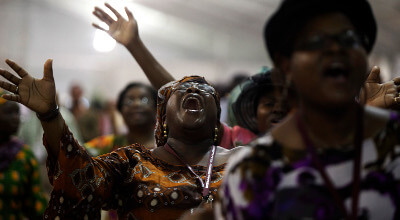We all know Jesus ascended into heaven 40 days after Easter Sunday, the day of His resurrection. After the disciples tarried for 10 days the Holy Spirit fell; that was the birth of the church. They all spoke with other tongues according to Acts 2:4. So when the Holy Spirit fell the new movement was called “Pentecostal” after the Day of Pentecost.
When Pentecost Sunday rolls around on May 27 this year, it will be celebrated in Catholic and liturgical churches because it’s part of their church calendars, but few Pentecostals will celebrate it. I’ve never understood why. Maybe it’s our revivalist tradition that came from the “sawdust trail” where anything that hinted of formal religion was thrown out.
But now, more than a century after the initial Azusa Street revival, some “Pentecostal and charismatic Christian communities in America are experiencing an increase in biblical illiteracy, a decreased desire for holiness and a lack of the fear of God, and a significant moral and leadership failure.” This was the conclusion reached by a group of Pentecostal leaders who met at Empowered21 in March at Regent University in Virginia.
Those in attendance signed a petition reaffirming an “unmoving belief in and commitment to the biblical teaching of the holiness, immediacy and power of the Spirit of God, and the Spirit’s empowerment of the Christian life and community.” You can read and sign the resolution at empowered21.charismamag.com.
I bring this to your attention now because various leaders—especially Billy Wilson of the International Center for Spiritual Renewal—agree that few Pentecostals celebrate Pentecost Sunday. They’ve set as a goal to encourage all Pentecostal/charismatic churches to “utilize Pentecost Sunday of each year for teaching and preaching on the Holy Spirit, inviting every generation to experience the Spirit.”
But the vision is even bigger: They are looking toward the 2,000th anniversary of the founding of the church—Pentecost Sunday in 2033—as when “every person in the United States of America and on earth would have an authentic encounter with Jesus Christ through the power and presence of the Holy Spirit.”
It’s something I fully support. And if you’re a pastor, preach on the Holy Spirit on Pentecost Sunday and invite people to receive the mighty infilling of the Holy Spirit. In a way, every Sunday is Pentecost Sunday, just as every Sunday is Resurrection Day. But since it’s on the calendar and since other churches recognize the day, let’s use it as a time to call attention to the fact that believing in the power of the Holy Spirit to change lives is something that isn’t just a theory in our churches but a reality.















































